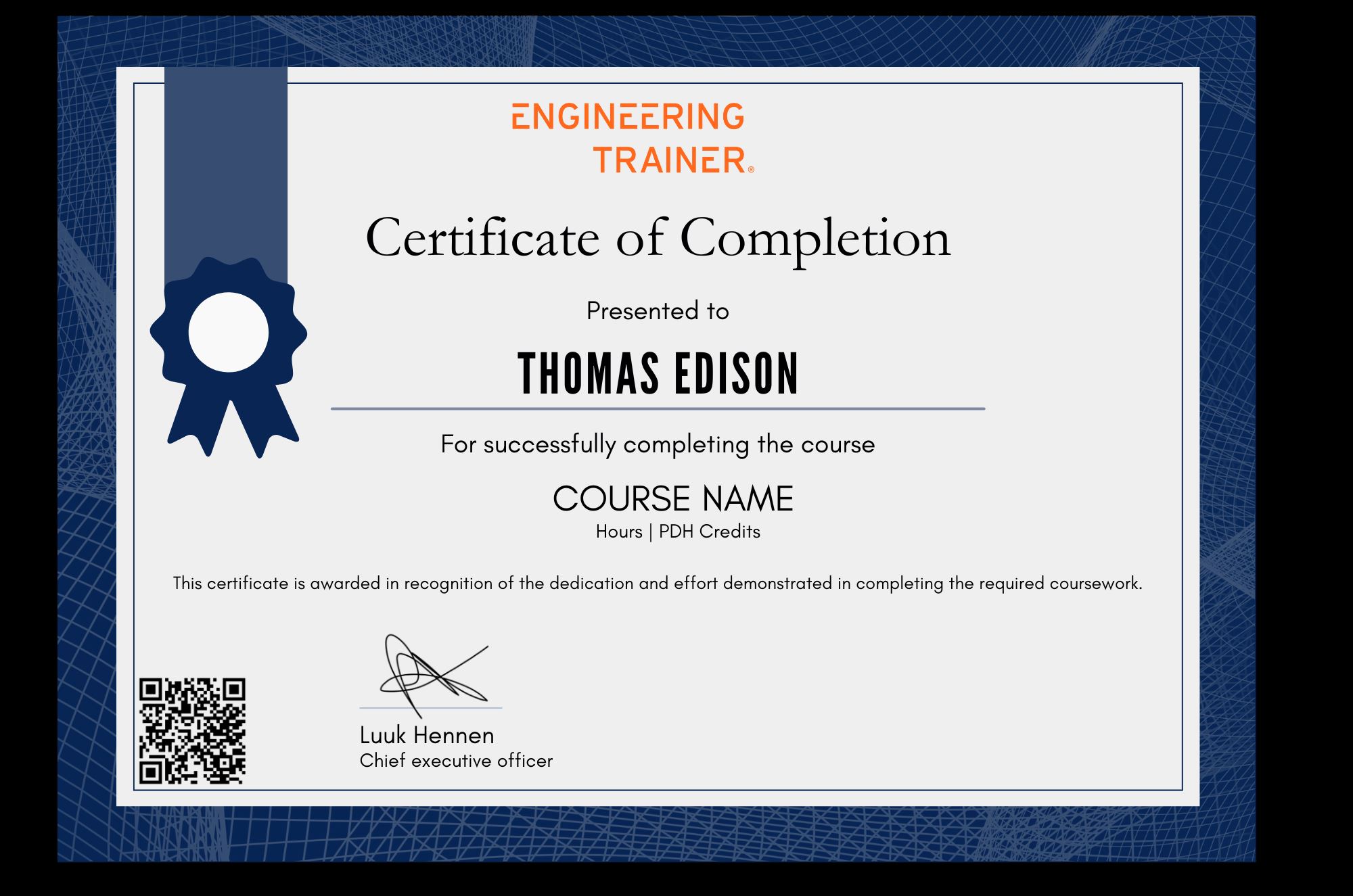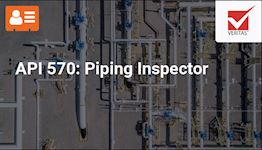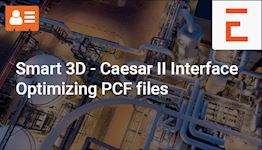Risk Based Inspection (RBI) conform API 580
Why take this course?
This self-paced course introduces the principles of Risk-Based Inspection (RBI) as outlined in API RP 580, focusing on developing, implementing, and sustaining effective RBI programs for safer, cost-effective operations. Includes video lectures, quizzes, and a certificate with PDH credits upon completion.
What you'll learn
After this course, you...
• have a good overview of Risk Based Inspection (RBI) in accordance with API RP 580, and understand the reasons for implementing RBI,
• understand how to implement and sustain an RBI program and have seen the essential elements as defined in API 580,
• know what is meant by practical likelihood and can perform a consequence analysis,
• have seen how to preparing inspection plans and how maintenance and inspection intervals can be safely optimized,
• understand the essential elements for an RBI assessment program as defined in API 580,
• have the skills to contribute to the implementation and sustaining of an RBI program within your organisation,
• have an overview of how other procedures (e.g. RIMAP, ASME) and related API documents (API 510, API 570 and API Std 653) relate to an RBI program.
About the course
Managing risk is a essential part of operating a facility or production process safely and cost effectively. The API RP 580 introduces the steps needed in an Risk Based Inspection (RBI) program and provides guidance on how to implement these in practice.
This 3 day instructor led virtual training course provides participants with a clear and thorough understanding of the basic elements for developing, implementing and sustaining an effective Risk Based Inspection (RBI) program as defined in API RP 580. The training course starts with the definition of RBI and explains the key elements. Participants are then shown how to implement RBI and how the RBI program once established can be sustained long term.
The course consists of 6 instructor led sessions spread across three days. All training content is provided through your EngineeringTrainer account.
Who should attend this course
• Engineers, inspection personnel, and maintenance personnel involved with corrosion, process safety, mechanical integrity• Inspectors who are already certified as per API 510, API 570, or API 653, and work for organizations with RBI programs
• Individuals who are interested in obtaining API 580 certification can utilize this course to supplement their exam preparation efforts
Prerequisites
Affinity with plant maintenance and operationProgram & Details
-
Basic Risk Assessment Concepts
Live
1. Risk Management and Risk Reduction
2. Risk Analysis
3. Inspection Optimization
4. Relative Risk vs Absolute Risk -
Introduction to Risk Based Inspection (RBI)
Live
1. Key Elements and Types of RBI Assessment
2. Precision vs. Accuracy
3. Understanding how RBI can help to Manage Risks
4. Relationship with Other Risk-Based and Safety Initiatives -
Planning the RBI Assessment
Live
1. Establishing the Objectives and Goals
2. Initial Screening
3. Establish Operating Boundaries
4. Selecting a Type of RBI Assessment -
Data and Information Collection for RBI Assessment
Live
1. RBI Data Needs
2. Data Quality
3. Codes, Standards and Site Specific Data -
Damage Mechanisms and Failure Modes
Live
1. Some Special Cases
2. Protecting Sensitive Equipment -
Assessing Probability of Failure
Live
1. Probability Analysis
2. Determination of POF (Probability of Failure) -
Assessing Consequence of Failure
Live
1. Consequence Analysis
2. Volume of Fluid Released
3. Consequence Effect Categories
4. Determination of the COF (Consequence of Failure) -
Risk Determination, Assessment and Management
Live
1. Determination of Risk
2. Risk Management
3. Sensitivity Analysis
4. Assumptions
5. Establishing Risk Thresholds -
Risk Management with Inspection Activities
Live
1. Managing Risk through Inspection
2. Identifying Risk Management Opportunities from RBI Results
3. Establishing an Inspection Strategy Based on Risk Assessment
4. Managing Risk with Inspection Activities
5. Managing Inspection Costs with RBI
6. Assessing Results and Determining Corrective Action -
Other Risk Mitigation Activities
Live
1. Equipment Replacement and Repair
2. Evaluating Flaws for Fitness-For-Service
3. Equipment Modification, Redesign and Rerating
4. Emergency Isolation and Depressurizing
5. Modifying the Process
6. Integrity Operating Windows
7. Reduce Inventory
8. Water Spray/Deluge or Water Curtain
9. Blast-resistant Construction -
Reassessment and updating RBI Assessments
Live
Why and when to conduct an RBI Assessment
-
Roles, Responsibilities, Training and Qualifications
Live
1. Team Approach, team members
2. Training and Qualification for RBI Application -
RBI Documentation and Recordkeeping
Live
1. RBI Methodology and Personnel
2. Timeframe
3. Basis for Assigning Risk and Assumptions
4. Results, Mitigation and Follow-up -
Summary of Risk-Based Inspection Pitfalls
Live
1. Planning, Data and Information Collection
2. Damage Mechanisms and Failure Modes
3. Assessing POF and COF
4. Risk Determination, Assessment and Management
5. Risk Mitigation Activities
6. Roles, Responsibilities and Documentation
Certification


Why choose EngineeringTrainer
-
Unlimited Team-wide Access
-
Advance Technical Competences
-
Courses by Industry Authorities
Since using EngineeringTrainer our internal mentorship has a much more matured character.
Logan Chapman - COO at Chapman Consulting Inc.
Request a Quote
Train Smarter. Grow Faster.
Build real-world skills that help you make better engineering decisions, reduce errors, and stand out in your field.








